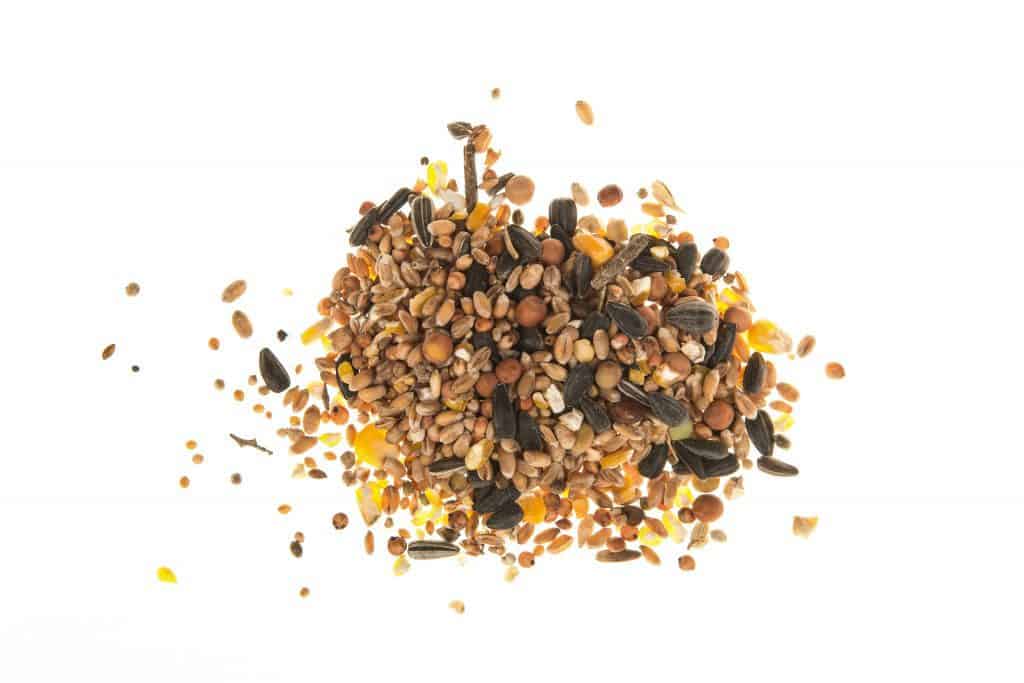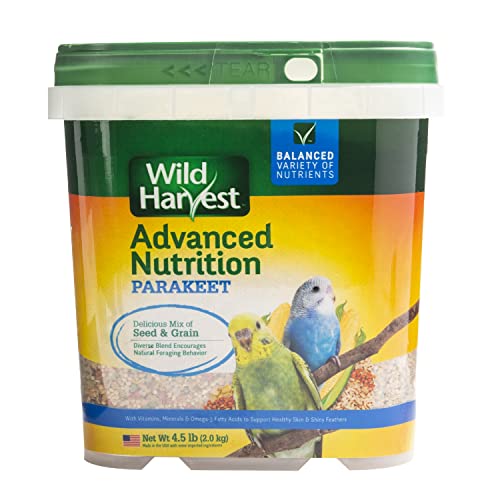Can Parakeets Eat Strawberries?
I was wondering if a parakeet could eat strawberries. A parakeet’s diet doesn’t usually consist of strawberries, only birdseed.
Can you feed strawberries to a parakeet? Parakeets can have strawberries and any other fruit with seeds. You have to pull out the bigger seeds of certain fruits, but smaller seeds like the ones in strawberries are just fine.
They may primarily eat birdseed, but they like fruit a lot and it’s okay to feed them any kind of berries that any human would eat.
What Fruit Can They Eat?
Parakeets love fresh fruit probably more than they love eating birdseed. There are a number of fruits which they can safely eat. Most fruits are okay so long as you cut it up and take out any large seeds.
Here is a list of some favorite fruits for a pet parakeet:
- Apples- Be careful of the seeds in apples because your parakeet shouldn’t eat them.
- Pears- Again, take the seeds out first before you give it to your parakeet.
- Melon
- Kiwi
- Berries (this includes ANY type of berry that is safe for humans)
- Grapes
- Oranges- Parakeets especially like seeds from any citrus fruits.
This list is only focusing on the parakeet’s favorites. There are a lot of options you have for feeding them, but you’ll probably be most successful with these
“Strawberries are a good source of vitamin C, manganese, folate (B9) and potassium, and contain small amounts of several other vitamins and minerals.”
WebMD
How Do They Like to Eat it?
I’ve already mentioned before that you need to be sure to remove the large seeds. However, you can also warm up some the fruit pieces as well when you feed your parakeet.
They really like it warmed up maybe even more than when it’s cold. Warming up the fruit brings out the juices and the flavor to make for a delicious juicy fruit meal for your pet.
Here are some tips for you when you are feeding fruit to your parakeet:
- Tip #1: Warm up the fruit.
- Tip #2: Put the fruit in a small dish right next to their water dish. Parakeets (and other birds) like to dip their food in water to make it easier to eat. Putting the fruit next to the water dish will make it more convenient for them.
- Tip #3: Make sure that you take the old fruit out of the cage before it goes bad. You don’t want your bird eating rotten fruit.
- Tip #4: Your parakeet may not be interested in strawberries or any other fruit and that’s okay. Not all parakeets like fruit and/or want to eat it.
Hopefully, some of these tips will help you feed fruit to your parakeet. Some of these tips are methods you can use to get your bird to like fruit and get used to eating it. They may not, but it doesn’t hurt to try and see.
Feeding your parakeet fruit is also a good substitute if you run out of birdseed. Some kinds of birdseed are expensive and it may be easier to just feed your bird fruit.
It’s also possible that you run out of birdseed and can’t get to the store for a while to purchase some. If you are sure to feed your parakeet fruits and veggies they should be fine until you can pick some up.
While it’s a nice treat, fruit should be balanced with birdseed. Parakeets need a well-balanced diet to stay strong and live long.

What Would Make My Parakeet Sick?
Most fruit is good for your bird, but there are a few things that will make your parakeet sick and is toxic for them.
Here is a list of foods you should never feed your parakeet if you don’t want to risk its life:
- Pits and seeds from fruits such as cherries, apricots, peaches, nectarines, plums, apples, and pears are all bad for your bird to consume.
- Onions and garlic should not be fed to your bird. Onions contain sulfur compounds which irritate the lining of your parakeet’s mouth when consumed. It can also cause ulcers and anemia. Garlic contains something called allicin which does relatively the same damage as onions. (A good alternative to feeding your parakeet onions and garlic would be to give it a hot pepper instead.)
- Fat foods are not good for your bird to eat. They can handle some very small doses of meats, but they should stick to fruits, seeds, and vegetables if they want to remain as healthy as possible.
- Salt is a no-no, too. It can upset the electrolyte and fluid balance in your parakeet. Parakeets are highly sensitive to dehydration which can cause instant parakeet death. Keep them away from salt.
- Chocolate can cause vomiting and diarrhea, tremors and seizures, and can kill your bird. Don’t give it chocolate!
- It is pretty self-explanatory that you would not give Caffeine to your parakeet, but I’m putting it on here for those of whom it is not obvious. Caffeine can cause cardiac arrest in birds so just stick to the water!
- Even though it is a vegetable, avocados are not good for your bird. Avocados are used as a substitute fat by humans and cause many of the same problems as feeding meat to your bird would do.
- Anything that has artificial sweeteners (mainly Xylitol) is not good for your bird. (This is in gum and some sugar-free products like juice and things like that.)
One last note, be careful with fruits that have had pesticides. Wash them thoroughly! Pesticides can be harmful to your parakeet. You may not notice the effects, but you are not as small as a parakeet.
Imagine if you were to shrink to the height of a pencil. Every kind of food would be a lot bigger and a lot more potent for you. It would be heaven! However, you wouldn’t be able to handle it all because the dosages of certain chemicals and things would be higher in regards to your small size.
How Often Should I Feed My Parakeet?
You should be feeding your parakeet every day. You don’t need to feed it all types of foods that you have for it every day, but it should be fed daily.
Softer foods you can feed to your parakeet at least every two days. Eggs and protein high foods you should be feeding your parakeet at least once a week. (This can include cheese, if you were wondering.)
You should make sure that everything you give to your parakeet is consistent and balanced. Giving him/her too much too often can make him/her sick.
Your parakeet should have water every day. In the summer months when it is extra hot, be sure to keep checking their water because it is really easy for parakeets to become dehydrated.
If you are worried your parakeet is not getting all the nutrients it needs, you can purchase vitamins and supplements to help them be more balanced in their diet.
Some of these vitamins can be mixed with their water so you don’t have to worry about trying to get them to eat it. It makes it so much easier and is really nice!
Related Questions
What else can I feed my parakeet? Eggs and their shells are something that you can give to your bird. Eggs are a good source of protein and their shells help provide a bit of calcium for your bird which is important for your parakeet’s health.
What is the best parakeet food brand? Here are five of the best parakeet food brands that are out there:
- Dr. Harveys parakeet best natural food
- Volkman Avian Science Super Parakeet Diet
- Kaytee Fiesta for Parakeets
- LAFEBER’S Classic Nutri-Berries for Parakeets
- Wild Harvest Parakeet Advanced Nutrition Diet
Can I feed my parakeet fresh fruit from my garden? Feeding your parakeet fruits and veggies from your garden is even better than buying it from the store. There aren’t as many pesticides and you know where that food has been. Also, there are a lot more nutrients in home grown foods than in processed fruits and veggies.
Just be careful as there might be germs and fungi that can reside in home-grown food that could make your bird sick. Although, it’s not likely that your bird will get sick.



